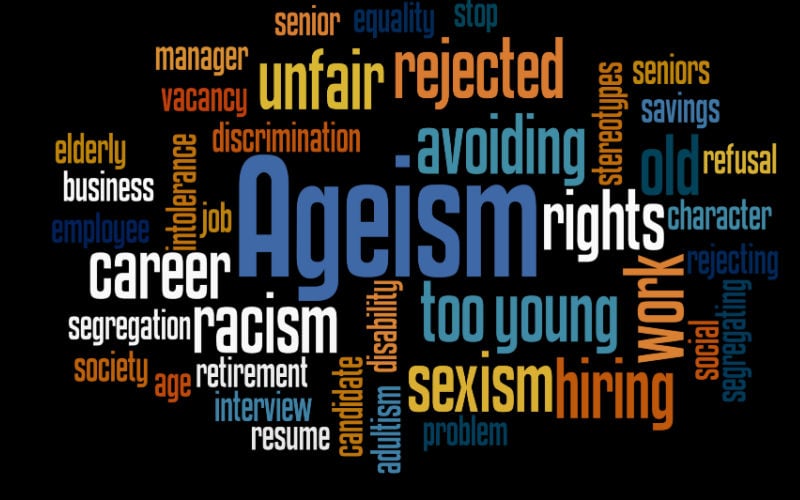1.5 minute read
While older workers may be more knowledgeable and experienced, employers tend to overlook them in favor of younger, less experienced workers. Despite laws to protect older workers, many age 40+ may have more difficulty finding work, keeping their jobs, or advancing in the workplace than their younger counterparts.
Ageism refers to the stereotypes, discrimination, and prejudice toward a person based on their age. In the workplace this occurs when an applicant or employee is treated less favorably because of their age.
Trends
Workplace Ageism
Despite legal protections, ageism continues to be common in the workplace. According to a report by AARP, ageist actions cost the U.S. economy an estimated $850 billion.
Fewer Opportunities
While nearly a quarter of the U.S. workforce are workers over age 55, labor force participation drops to 26.6% once workers reach age 65.
Delayed Retirement
Some workers delay retirement due to changes in retirement benefits and cost-of-living increases. Workers over 65 are the fastest-growing workforce segment, which increases instances of workplace ageism.
Longer Job Searches
According to AARP, 76% of older workers believe that their job search will last longer than three months due to ageism.
A Subtle Form of Discrimination
Age discrimination tends to be a more subtle form of workplace discrimination. It can be difficult to prove and root out.
Ageism and Health Costs
A study shows that ageism costs the U.S. economy $63 billion per year in health care by causing greater stress, which can impact health outcomes and lead to serious medical issues like heart attack or stroke.
Takeaway
Employers who are aware of these trends are better equipped to develop strategies to integrate older workers in the workplace, which can expand talent pools and decrease the risks of violating their legal protections. Download the bulletin for more details.

